- Home
- Tim Lebbon
Predator: Incursion Page 6
Predator: Incursion Read online
Page 6
Love Grove Base, Research Station, LV-1529
May 2692 AD
Since the first signal had arrived a little over two years before, Angela Svenlap’s life had been taking on meaning. Before that fateful moment, she had passed the days, months, and years with a mysterious hollowness inside. Highly intelligent, curious, eager to learn, she had long proven herself to be a forward-thinking and energetic person.
From her birthplace on Jupiter’s moon Io, her journey out into the Human Sphere had taken years, because wherever she stopped she found something else to fascinate her. After a fateful meeting on Addison Prime, the focus of her curiosity had narrowed toward the Yautja. The old man had been a survivor of a Yautja attack on a Titan ship over fifty years earlier, and she had sat and interviewed him for days.
Since then, Svenlap had become an authority on Yautja appearances throughout human history. The veracity of such reports dwindled the further back in time they went. For several hundred years before there were fairly reliable accounts, stored in free access quantum folds, storage streams, or even a few old hard discs she had come across or been sent by others who knew her interest. From before that, there were some books still in existence that recorded what might have been Yautja presences on Earth before interplanetary space travel.
Before that, only conjecture.
She liked investigating. It made her feel alive. But even while immersed in a new case, with every waking minute spent reading, cross-referencing, trying to match evidence with diverse and seemingly unconnected reportage and accounts, that hollowness within persisted.
Sometimes she tried to examine it. Assessing it from afar, the void averted its gaze. Looking directly inward at it made her depressed. It was as if she was uncertain who she was. As if the person she believed herself to be—the Angela Svenlap who had been building herself up around this dark hollow for the full fifty-seven years of her life—was merely a mannequin, constructed to camouflage something deeper and more shadowed.
Then that message—a few simple words that had brought meaning.
The Founders have not forgotten you.
Her life had changed in an instant. That change continued.
It was the older sightings she enjoyed researching most. She had one scanned photograph, several questionable testimonies, and a doctor’s written report with much of its detail redacted. The photograph was black-and-white, out of focus, and hazed by battlefield smoke and chaos. The testimonies had been translated from their original Russian by a German soldier, and in turn translated again by an American academic several years after the end of World War Two. It had been a place of terror, a confused and hellish landscape, hardly the scene for trusted eyewitness accounts.
Finally, the doctor’s report had been hacked to pieces by his superiors. It was this more than anything else that convinced Svenlap that she might have something.
She stared at the photo on the holo frame before her. After putting it through every focusing, adjustment, and clarification process she could think of—and allowing her computer to assess it with several approaches that hadn’t even crossed her mind—she had returned the image to its original, seven-hundred-year-old form.
The shadow of a blasted building on the left. A street, piled with rubble and corpses and the blazing remains of a military vehicle of some kind. On the right, another ruined building, and framed in an open doorway, a figure. Too tall for the doorway, it seemed to be standing back and observing the chaos. Wide chest. Jutting jaw. The silhouette of a hairstyle quite unlike any worn by people of the time, men or women. In its lowered right hand, something that might have been a spear.
“Gotta be,” she muttered for the dozenth time. Even though accounts provided hints, it was the photograph that gave her most faith. She had come to know the Yautja well, and was determined that this shadow would not haunt her. It was time to close the case.
“Confirmed Yautja sighting,” she dictated, the computer recording every word. “Case study number three-three-nine. Location and time—Stalingrad, January 7th to the 11th, 1943. Number of kills…” She trailed off, thinking of those questionably translated accounts again, the heavily censored doctor’s report. “Number of confirmed kills, twenty-eight, with more than a hundred more possibles.” She paused again, then nodded.
The shadow in the photograph stared back, almost as if listening to her every word. It stood tall. Looked proud. She wondered what had happened to the alien—whether it had been killed and pulverized in that terrible battle, or escaped to hunt, stalk, and kill another day.
She was about to turn off the holo frame when a message arrival chimed in. Her heart stuttered. She gasped, half-stood, and reached for the frame, as if to pluck the message she so craved. Sweating like a phrail addict, she forced herself to sit back down and catch her breath. It had been almost ninety days since the last communication, and she’d begun to wonder if they had forgotten her again.
No, she thought. They never forgot us. Never!
“Message status?” she asked in a shaky voice.
“Private,” her computer said. “Identifier, Beatrix Maloney. Duration, nineteen seconds. Broadcast source unknown.”
“Play,” Svenlap breathed.
The message played.
* * *
It kept playing, again and again, and as she remembered the words and their echoes they filled that empty place inside her, making it whole and heavy, a solid mass whose gravity drew her in and down, almost smothering the Svenlap she had become beneath the Svenlap she needed to be. Her thoughts belonged to this new person, and yet she felt herself more whole and complete than she ever had before.
The Founders have not forgotten you, and your patience is our power, your faith our strength. Build for us. Create for us.
It was inspiring stuff, and Svenlap grasped hold of the sense of belonging these words gave her. The final, more poetic sentence made her cry.
In the deep, in the dark, let light blossom to illuminate our way home.
“Home,” she whispered as she rummaged, drifting from room to room in the deserted east wing of the base. It had been closed down several years ago after a particularly ferocious storm ripped out one wall and collapsed part of the flat roof, and the Love Grove Base management had decided that the remaining, solid areas of the sprawling building were plenty big enough for its current use. The atmosphere processors virtually ran themselves now, and these dozens of rooms built to house builders, engineers, and technicians were now redundant.
They had left so much behind.
“Home,” Svenlap muttered again. She frowned, a little confused.
In one room, swirls of trimmed light-wire caught the glare of her flashlight and stored the light deep. She curled it around her hand, then tucked the ball into her bag. Across the room, on a dusty table, she found some semi-spherical objects, metallic containers the size of her hands which might once have been used to house laser charge pods. She pocketed two of these, as well as a scattering of bolts used to connect them tightly together.
Wind howled through the corridor as she moved toward the fallen eastern end of the wing. The walls ran with rivulets of moisture, and sand and grit had drifted, providing a strange internal landscape. Her flashlight cast shifting shadows across the ceiling.
The Founders have not forgotten you.
Alone in this deserted part of the base, breathing in an atmosphere heavy with dust and moisture and still not rich enough in oxygen to sustain her for more than a couple of hours, she felt watched and wanted, trusted and needed. Hers was a lofty mission.
There was only one instant when the old Svenlap peeked through. She staggered to a halt and thought through what she was doing. Her hands were scratched and cut from digging through old tools and hardware. The ghost of what she intended to build haunted her.
“Let light blossom,” she said.
Shoving aside panels that had warped and fallen from the ceiling, she barged her way into one of the remotest rooms of the b
ase. As far as she was aware, no one had been here for years, and the interior looked like part of the outside landscape. Open to the elements along one side, it had filled with sand, walls were down, furniture rusted and rotting over time in the acidic atmosphere.
In the far corner was the heavy door that led into a storage room. It was locked tight, but the hinges were decayed. Even using a steel bar, though, it took her half an hour of grunting and straining to prize the top hinge apart, then another twenty minutes to break open the bottom hinge. She paused for a rest and a drink, the water tasting rank as it swilled out her mouth and she swallowed dust she’d been breathing in. She feared what it might be doing to her insides, but at the same time, she knew that she didn’t have long left to worry.
Groaning, sweating, her bleeding hands slipping again and again on the slick metal, Svenlap tugged the door far enough open to squeeze inside.
She used her flashlight again to find what she needed.
There was plenty there.
* * *
She had never been technically minded. She’d dabbled in engineering when she was younger, but drifted away when other interests took hold. Passions, like her obsession with Yautja history.
So now they had two dead Yautja on the base.
Scattered around the edges of her desk and discarded on the floor were the paraphernalia from her current work. Photographs, paper copies of scanned books, tactile objects that she found so much more beneficial than their electronic or holo equivalents.
Deep inside, Angela Svenlap knew that she should be beyond excited. She’d known about the bodies since before Palant returned from her off-base jaunt, and had barely been able to control her excitement. Later that day, she had intended to return to Palant’s labs to see the bodies, perhaps have a really good look at them. They might be carrying trophies that could pin them down to a specific point in history. Imagine being able to locate some concrete piece of Yautja evidence from that Stalingrad battlefield!
But then the new message had arrived, and any enthusiasm for the Yautja flitted away. Now, in the center of her desk was the new focus of her attention.
The air stank of hot metal. Solder singed. Wires sparkled. It was an old-fashioned technology, but one which she suddenly understood more than she ever had before. She wasn’t sure why.
The ideas rose from that dark place deep inside, now no longer dark—now bright and full of promise.
“Illuminate our way home,” she whispered as she connected another wire. It looked a mess, but she knew it would work.
In a bag by her feet lay the stuff she’d brought from that destroyed room. Left over from the construction of the atmosphere processors, left behind when it never should have been, she had always known it was there, but had shown no interest. Why should she?
The old Angela Svenlap had no interest at all in explosives.
4
JOHNNY MAINS
Arrow-class vessel Ochse
Near Yautja Habitat designated UMF 12, beyond Outer Rim
July 2692 AD
For more than two centuries there had been a cold war between humanity and the Yautja. Occasional skirmishes were recorded, and sometimes the mysterious losses of remote vessels or communities were attributed to Yautja action.
In turn, there had been several cases of the alien ships being tracked and destroyed by Colonial Marines Spaceborne units when they strayed too close to human settlements. Thirty years before there had been a series of sporadic battles between Excursionists and a clan of particularly invasive Yautja across the southern Outer Rim, but that conflict had died out as quickly as it began, the enemy melting away into the void.
Captured tech was reverse engineered, incorporated into Excursionist craft and equipment, and then rapidly became outmoded. The Yautja, it seemed, didn’t like their capabilities being turned against them, and they had an extremely advanced grasp of space travel, combat, and camouflage technologies.
They had never been declared an outright enemy, but they were far from friends.
Johnny Mains wasn’t keen to move in closer to UMF 12—the Yautja habitat—for too long. The cloaking tech they were using was considered cutting edge, developed by the guys at ArmoTech who Colonial Marines affectionately called the Gadget Guys. It enabled ships to blend into the background, sometimes invisible to known scanning methods, sometimes disguised as an asteroid. Yet by its very definition, cutting edge had a short half-life. Cutting edge one day was outmoded the next, and Mains was constantly worried that the Yautja would see right through them.
“Frodo?” he asked.
“A little over three thousand miles,” the ship’s computer said.
“Almost close enough to see,” Cotronis said. “McVicar, open a window!”
McVicar mumbled something coarse beneath his breath and continued monitoring the open communication channels.
“Anything, McVicar?” Mains asked.
“No, boss. Background stuff, but nothing new.”
“You got translation filtering?”
“Of course.” McVicar sounded put out, and Mains should have known the big man was on top of things. Of course he was. They all were—but Mains was nervous. He was already starting to doubt his idea of moving in much closer, but they were set on their course now.
From outside the Ochse would resemble a tumbling asteroid, and already their trajectory was taking them slowly away from UMF 12. They couldn’t get too close and risk being taken out in a collision.
Faulkner was on weapons, and they were all powered up. The Ochse was heavily armed with laser cannons, a particle beam modulator, sub-space limiter, and micro-nukes. It also carried three drones that could be deployed and recovered, and Faulkner and Cotronis had fitted one of them with a cloaking device similar to the ship’s. They were fully loaded and ready for a fight, but fighting was what Excursionist missions were tasked to avoid.
Lieder sat in her pilot’s chair, although Frodo was controlling the Ochse’s very particular roll pattern, shifting longitudinally but keeping their forward cannons to bear toward the habitat. If something came at them—ship, missile, laser—they’d have a chance to retaliate before getting out of there.
Snowdon shifted her seat back and forth in front of a range of holo frames, gathering as much information as she could about the habitat. The massive craft really was close enough to see, and Snowdon was recording as much as possible. Mains could see that she was excited—but nervous, too. That was good. They all needed to stay on their toes.
“Snowdon, anything we should be concerned about?” He could have asked Frodo, but he preferred the human element.
“Looking much the same to me, L-T,” she said. “No major change in the habitat’s status since we were last here. There are a couple of new ships in orbit, but no sign that they’re powering up. No significant drive trails. Same course and velocity as before.”
“Just following the edge of the Human Sphere,” Cotronis said.
“We’ve had border skirmishes before,” Mains said.
“Yeah, but not with something this big. We have no idea how many of those bastards are living there.”
“That’s why they’re just skimming,” Snowdon offered. It was strange terminology, considering the fact that they were almost two light years beyond the notional Human Sphere—trillions of miles of mostly empty space. “Moving that thing into the Sphere would be an act of war.”
“We should take it out,” Cotronis said.
“And that wouldn’t be war?” Mains asked. His corporal was experienced, dedicated, and intelligent, but sometimes her mouth was way ahead of her head.
“It’s only the third time we’ve ever seen a habitat,” Lieder said. “There’s a lot we can learn from it. That why we’re here.”
“Right,” Mains said.
“Right,” Cotronis agreed, smiling. “I’ll keep my nuclear wet dreams to myself.”
“Want to take a look at what I’ve got?” Snowdon asked. “Our scans can’t be
too intrusive, but we’re close enough for a couple of the holo cameras to have built up a pretty decent picture.”
The flight deck went quiet, filled with a sense of anticipation. Until now none of them had actually viewed the Yautja habitat—not with their own eyes. Frodo had built up a huge set of data, including dimensions, composition, and as much intelligence about the structure’s internal makeup as possible. But it was all data.
“Let’s do it,” Mains said.
Before their eyes, the viewing windows turned opaque and the components of a holo frame folded out of the ship’s structure. They moved closer, edges touching, and then fogged up. Moments later it turned dark, spotted with stars. Snowdon slid her wheeled chair forward so that it was between Mains and Cotronis, then worked the small control tray in her lap.
Within the holo screen, the Yautja habitat appeared.
At first it was a long view. The habitat was visible as a whole, a little over six miles long, and from this perspective there was little detail to be seen. It looked like a long tube, wide in the middle and growing narrower toward each end. Towers and protrusions rose along its length, some of them taller than the main structure was thick. Mains guessed that some of those arms were almost a mile long. It gave UMF 12 the appearance of a strange, spined sea creature, spinning slowly around its long central axis.
“Aaaand closer…” Snowdon said.
The image grew, quickly becoming too large for the frame and zeroing in on the superstructure. They knew it was made from some sort of artificial material that resembled ultra-strong bone, and had long suspected that it was extruded by machines probably still active inside the habitat. Seeing the vessel’s outer hull—or skin—close up only reinforced this image. The surface seemed smooth but uneven, pocked with random depressions and lined with staggered ridges. It was a pale gray color, almost off-white. Shadows might have been openings, or deeper depressions. Thin lines might have been cracks or fractures, or some sort of intentional hull markings on a massive scale.
As the habitat spun the view turned, and then blurred momentarily as one of the tall arms swept past.

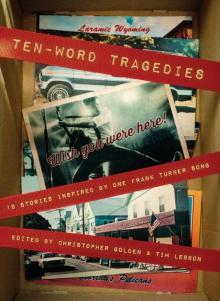 Ten-Word Tragedies
Ten-Word Tragedies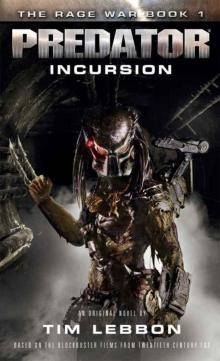 Predator: Incursion
Predator: Incursion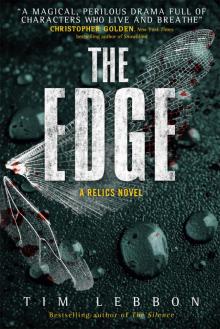 Relics--The Edge
Relics--The Edge Firefly
Firefly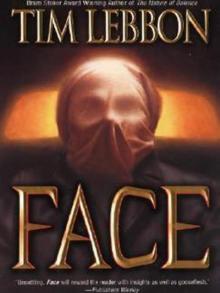 Face
Face Generations
Generations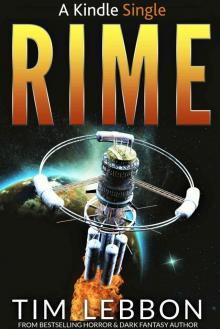 RIME (Kindle Single)
RIME (Kindle Single) Fallen
Fallen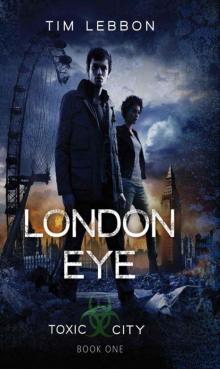 London Eye tc-1
London Eye tc-1 Kong: Skull Island
Kong: Skull Island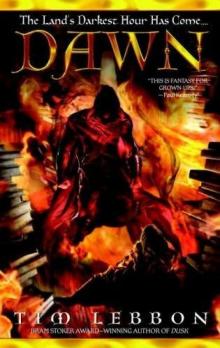 Dawn n-2
Dawn n-2 Into the Void: Star Wars (Dawn of the Jedi)
Into the Void: Star Wars (Dawn of the Jedi) The Everlasting
The Everlasting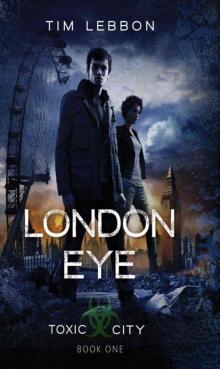 London Eye: 1 (Toxic City)
London Eye: 1 (Toxic City)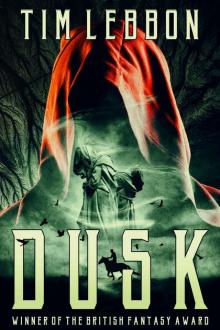 Dusk: a dark fantasy novel (A Noreela novel)
Dusk: a dark fantasy novel (A Noreela novel)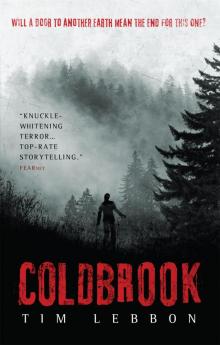 Coldbrook
Coldbrook Alien
Alien Dusk
Dusk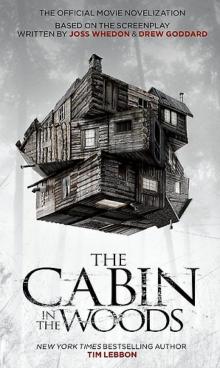 The Cabin in the Woods
The Cabin in the Woods The Heretic Land
The Heretic Land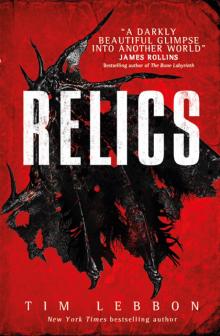 Relics
Relics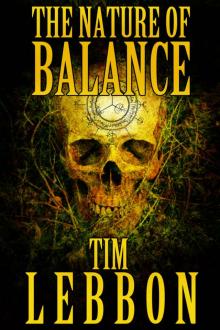 The Nature of Balance
The Nature of Balance Echo City
Echo City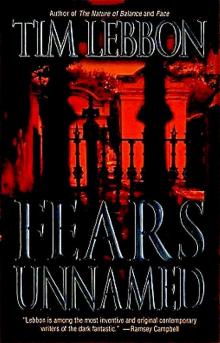 Tim Lebbon - Fears Unnamed
Tim Lebbon - Fears Unnamed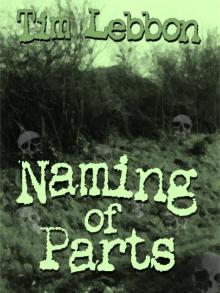 Naming of Parts
Naming of Parts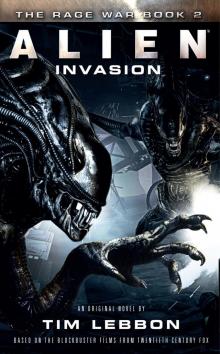 Alien--Invasion
Alien--Invasion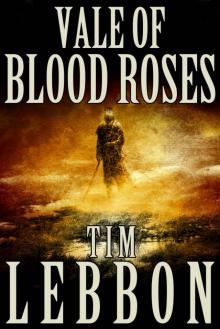 Vale of Blood Roses
Vale of Blood Roses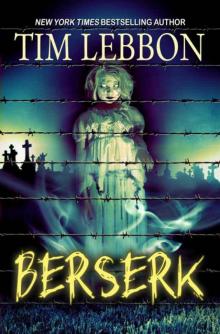 Berserk
Berserk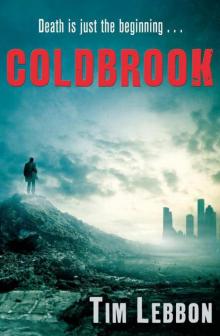 Coldbrook (Hammer)
Coldbrook (Hammer) Contagion tc-3
Contagion tc-3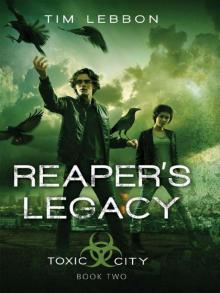 Reaper's Legacy: Book Two (Toxic City)
Reaper's Legacy: Book Two (Toxic City)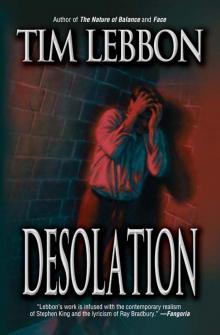 Desolation
Desolation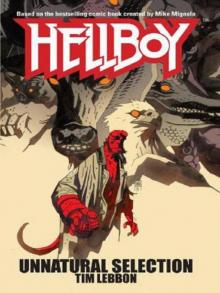 Unnatural Selection
Unnatural Selection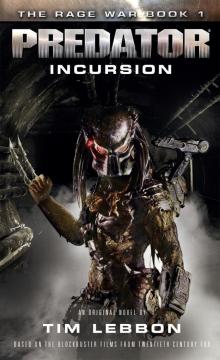 Predator - Incursion
Predator - Incursion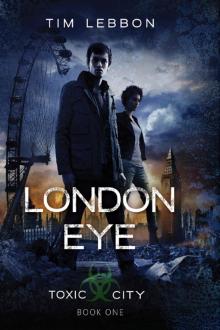 London Eye
London Eye Contagion (Toxic City Book Three)
Contagion (Toxic City Book Three) The Silence
The Silence The Thief of Broken Toys
The Thief of Broken Toys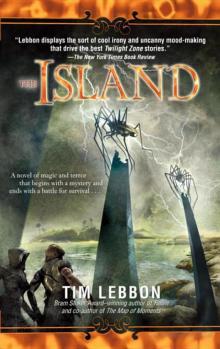 Tales of Noreela 04: The Island
Tales of Noreela 04: The Island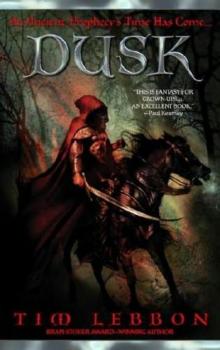 Dusk n-1
Dusk n-1 White and Other Tales of Ruin
White and Other Tales of Ruin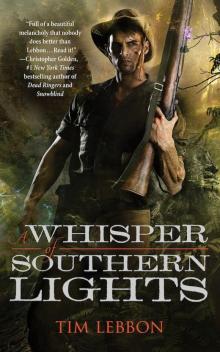 A Whisper of Southern Lights
A Whisper of Southern Lights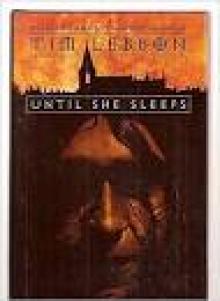 Until She Sleeps
Until She Sleeps Relics--The Folded Land
Relics--The Folded Land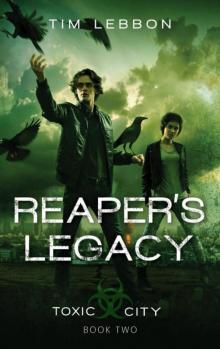 Reaper's Legacy tc-2
Reaper's Legacy tc-2 Alien: Out of the Shadows
Alien: Out of the Shadows Pieces of Hate
Pieces of Hate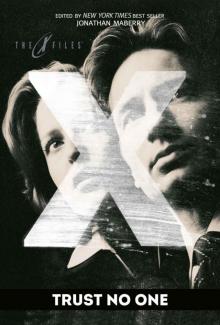 X-Files: Trust No One
X-Files: Trust No One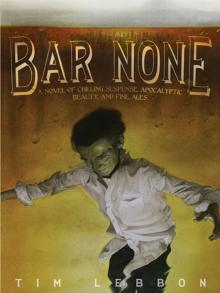 Bar None
Bar None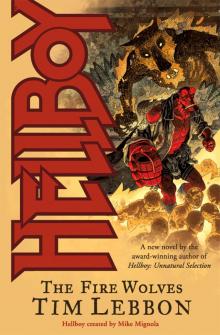 The Fire Wolves
The Fire Wolves